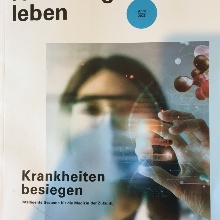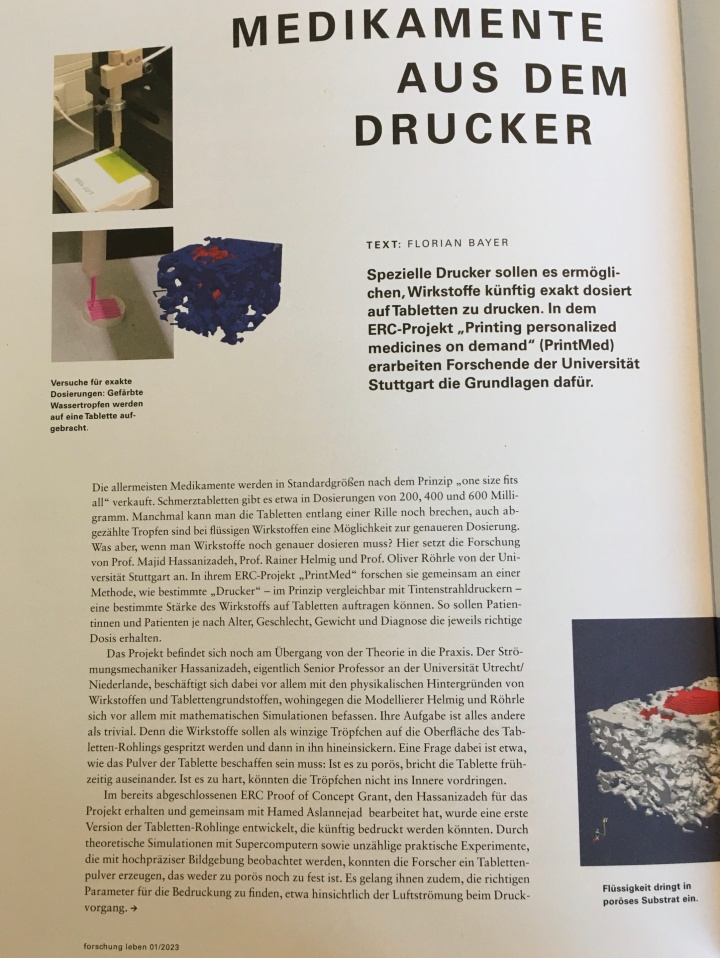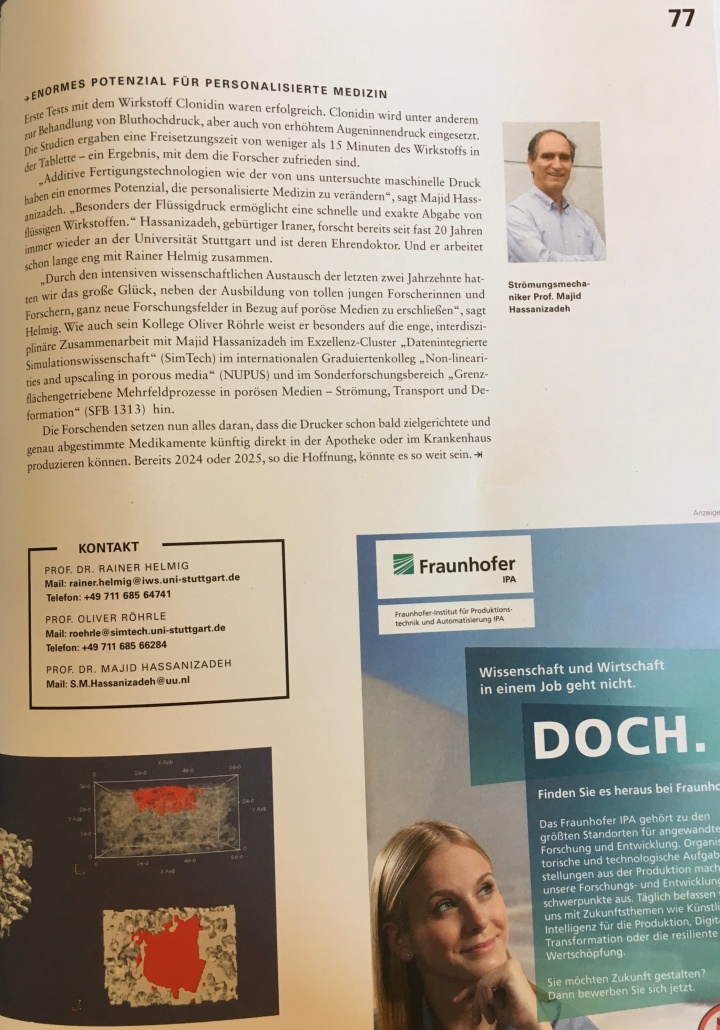The new issue of Forschung Leben, the magazine of the University of Stuttgart, is out with the topic "Krankheiten besiegen" (Conquer Diseases). SFB 1313 contributed with an article about its associated research project A-X1 "PrintMed: Printing personalised medicines on demand". SFB 1313 partner Majid Hassanizadeh and SFB 1313 spokesman Rainer Helmig explain the porous media research on printing the exact doses of active substances on tablets in the future. In their project, they are developing the basics for printing personalised medecines on demand.
Forschung Leben | Issue Krankheiten besiegen (April 2023)
Print article: "Medikamente aus dem Drucker" (DE) | by Florian Bayer | pp 76-77
About the PrintMed project
Methods of pharmaceutical manufacturing are likely to change dramatically over the coming years. Driven by the knowledge and technology that is already available in other sectors, the processing of drugs into dosage units can be transformed into a “pharmacy-on-demand” process that allows individual dosing, based on criteria relevant for the effective use of the drug in an individual patient. One approach to achieve “pharmacy-on-demand” is the use of inkjet printing technology to deliver an exact dose of drugs on porous substrates. This proof-of-concept project is based on knowledge we acquired during my ERC Advanced Grant project on processes of printing on paper using inkjet printing. We will demonstrate the viability of "printing" highly accurate amounts of a solution containing levothyroxine, prescribed for hypothyroidism, onto a porous tablet. Modelling tools will be combined with cutting-edge characterization technologies to push the understanding of printed drug-containing inklike solutions in porous dosage unit matrices. This project will transfer pharmaceutical formulation and product design of individual dosage forms with the use of inkjet printing technique to the pharmaceutical community. They can work on clinical approval tests of the developed oral dosage forms and move these products toward clinical use. The patients will benefit directly from development of this production technique, because a much more effective and targeted medication can be provided. The next step will be the development of the inkjet printing technique for other personalized medicines such as pain killers for children, hormones, biomacromolecules, psychoactive and anticancer drugs. Individually-dosed medicines will allow for substantial decrease of drug waste and thus overall reduction of medical expenses.




